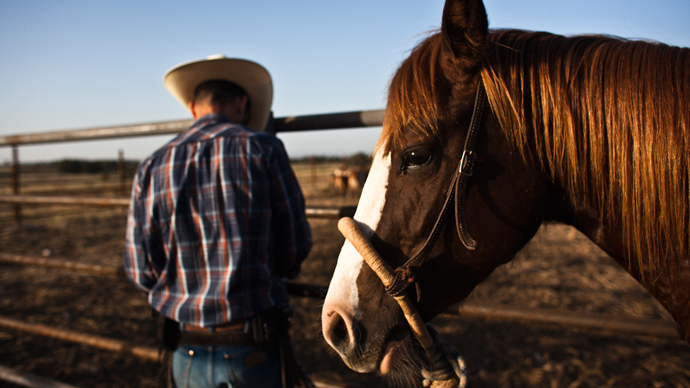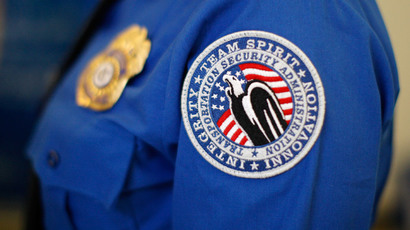Feds start rounding up wild horses in Utah

Another standoff between federal officials and rural rangers has the potential to escalate in Utah, just one state away from where a similar dispute recently propelled a disagreement there into the national spotlight.
The United States Bureau of Land Management says that there should be no more than 300 wild horses grazing in a chunk of southern Utah’s Iron County, Reuters reported over the weekend, but federal officials estimate that the number is actually closer to 2,000. Now as the feds attempt to figure out how to get their hands on the animals in order to literally thin the heard, wild horse preservation groups are stepping up and speaking out.
Officials with the both the BLM and Iron County are attempting to wrangle up the wild horses that roam freely in federally-designated herd management zones, but advocates say such an operation is against the law.
According to the local and federal government, the sheer number of wild horses in the region is decimating the land.
"There's been no management of the animals and they keep reproducing," County Commissioner David Miller told Reuters recently. "The rangeland just can't sustain it."
"We're going to see those horses starving to death out on the range," he added. "The humane thing is to get this going now."
In order to reverse that trend, county workers and BLM staffers began setting up metal corrals last week designed to track those wild horses until they can be moved to federal facilities and put up for adoption.
"The BLM is actively working with Iron County to address the horse issue," Utah-based BLM spokeswoman Megan Crandall acknowledged to Reuters.
But speaking to the news agency, attorneys representing wild horse preservation groups say it’s illegal for the government to try and control the population of the animals on public land without first following certain rules.
"The BLM must stop caving to the private financial interests of livestock owners whenever they complain about the protected wild horses using limited resources that are available on such lands," lawyer Katherine Meyer of Meyer, Glitzenstein and Crystal told Reuters.
Only one state away, the BLM recently came under attack for an all-too-similar instance in which the same federal department began confiscating cattle belonging to a Nevada rancher who for 20 years has refused to pay the US government for letting his livestock graze on land that he says he rightfully owns. The feds, however, insist that owner Cliven Bundy owes around $1 million in agistment fees, and has started to take his animals for allegedly allowing them to illegal trespass on government property — a claim that Bundy has adamantly disputed.
"I would pay my grazing fees to the proper government, which I would say is Clark County, Nevada," he added to the Deseret News on Thursday.
"I don't believe I owe one penny to the United States government," Bundy said. "I don't have a contract with the United States government."
Meanwhile just one state away, the latest dispute surrounding land ownership to emerge has yet to involve any privately-owned animals. As evidenced by the Reuters report, however, advocates are starting to sound an alarm over the BLM’s recent activity and the standoff could soon intensify further: when the BLM tried to clear wild horses from a chunk of Nevada in early 2012, at the time Katherine filed a complaint in federal court against the BLM that eventually ended with the agency rescinding their attempt to capture roughly 200 stallions.
"The proposed actions are precedent-setting and permanent in nature - and we firmly believe the court will find them in violation of the law," Katherine said then, according to the Cloud Foundation. Now just two years later, her law firm is against fighting to keep a similar precedent from being set in the state of Utah.













